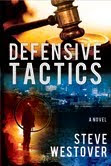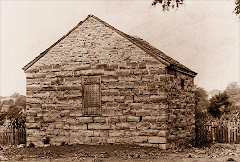
"It seemed like ages since Kate's father went off to war, and she is eager to thank him for the beautiful German music box he sent for her birthday. Butwhen it starts playing a strange, new melody and Kate vanishes into thin air,Captain Edison is willing to do anything to rescue his little girl.
When the Canticle Kingdom is attacked and the queen falls deathly ill, Joann, a young blacksmith's apprentice, learns a terrible secret - the kingdom is containedentirely within a music box in another world.
With the help pf his friends, Johannraces to bring aid from that other world in an effort to stop the dark power thatthreatens to destroy them all.
Enter a beautiful world full of magic, danger, loyalty, and bravery in The Canticle Kingdom, and discover that even the most ordinary objectsand people might be hiding something truly wonderful inside."
Review:
What a fun story. I applaud Michael on his first published novel and I look forward to his next. The Canticle Kingdom is a complex book. Multiple characters are introduced rapidly in various locations and times, which can be confusing if you’re not paying attention, but I think Michael did a good job tying everything together.
It is a real challenge to accomplish everything that has to happen in a novel. As readers we are pretty demanding. We want immediate action to pull us in. We want cliffhangers at the end of every chapter to keep us turning the pages and we want interesting characters we can relate to. We want to understand their motivation and history. We want to understand the back-story but we want the pace to race along. We want to be emotionally involved and we want to delve ourselves directly into the scenes. We want to be surprised and intrigued but we want hints about what will happen so we can connect the dots to gain understanding about the direction the story his heading--but not too many hints. We want the author to give us all of this while providing a bit of humor emotion. It’s not a lot to ask is it? Actually yes, it is. When all of these things can be accomplished in a fun, clean read, you know you’ve got a winner.
The Canticle Kingdom begins with a fascinating premise of an entire kingdom locked inside a music box and ends with the two worlds colliding as characters in both worlds race to save the day. Wonderful!
Author Interview:
Michael, tell us something about yourself that most readers don’t know.
I grew up as a child of a military father and so have lived all over the world and the United States. Moving every two or three years was tough, but I did get the chance to experience many exciting places and meet many wonderful people.
What inspired you to write The Canticle Kingdom?
The idea came to me in a weird place: stocking shelves at Target. I’ve always loved the Fantasy genre, and grew up telling such stories to my siblings, so I figure my mind goes to that area quite often.
What do you hope readers will gain from reading your book?
I hope they will be inspired that all fantasy does not have to follow the mold that Tolkien gave us. It’s a standard and produced great works, but sometimes people think they have to use it to write successful fantasy.
Do you outline your book from start to finish, or do you figure it out as you go?
This one, I outlined very loosely and then went on the journey. I have since gone to outlining my works more extensively before plunging into the fray.
What is the most rewarding aspect of writing and getting your book published?
I love the aspect of the influence for good you can have as a writer. I have always had that desire, but now that I’m actually published, schools, bookstores, etc take me more seriously, which opens doors for helping people: inspiring them to write, instilling a love of reading in them, and helping them become better writers together.
What is the most frustrating?
Marketing. It’s not something I had any prior experience with. There are so many things to learn and so many ways to go that it is quite daunting.
What is the most common criticism you hear about your book?
Some people find it a bit confusing at parts. Other people breeze through it. It’s a good comment, which I will listen to and try to incorporate into my future books.
How can you learn from the negative critiques?
First, I take it with a grain of salt. Often it is a matter of taste. I know it’s hard for me to be positive about gushy romance books, and so I don’t fault people who say things because they don’t like fantasy. For example, I had one person complain because the book was not “realistic.” It’s a fantasy book. It’s not supposed to be.
Then, I have to remember that most people are not saying things to be spiteful. It is important to learning that you don’t take it personally. Wait a little while after seeing it and then go back to it with an objective eye to see what you can glean from it to help you improve.
Lastly, you are still the author. You don’t have to agree with everyone who naysays your book.
Do you have any other published works, or are you working on anything now?
“The Canticle Kingdom” is my first published novel, but I have also published a number of short stories and magazine articles. I’m currently looking for publishers for two completed works and I have another few manuscripts in the work. I’m committed to keep writing and trying improve until I drop.
If you had to choose 1 paramount lesson you’ve learned as a writer, what would it be?
Persistence pays. More than talent, I think it is the persistent who refuse to quit and who refuse to stop learning who will be successful writers.
As an actor in the theater and a singer in the Mormon Tabernacle Choir, and as a fiction writer, is there a difference in the relationship between talent and hard work, or do all of these areas require a similar balance?
I find that this relationship holds true over all of my artistic outlets. I've been turned down and rejected a lot in writing and in performance, but that is to be expected. I think the success I've had in my life has come from a combination of not getting discouraged and taking little steps every day to improve my craft.
Of your multiple artistic outlets, which is the most challenging?
Out of all my pursuits, I feel like writing is perhaps the most challenging. With music and theater, I feel like I was born with more innate talent than writing, and so writing has been something I've had to put a lot more effort into the "how to" phase of it. Also, it was a lot easier to do music and theater growing up in school, while creative writing was something I only used occasionally.
Most rewarding?
I can't say I find one more rewarding than the other. They all entail the aspect of creation, making something that never has been seen before, and that is uniquely yours."
Thank you Michael
The Canticle Kingdom is an excellent stocking stuffer for Christmas. Buy it now.
http://www.amazon.com/Canticle-Kingdom-Michael-D-Young/dp/1599553627/ref=cm_cr_pr_product_top
































